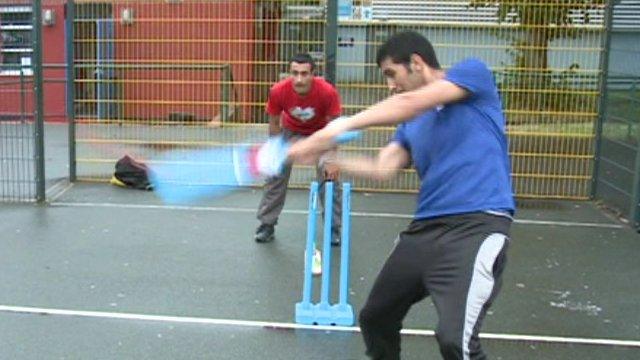Cricket-loving Asian migrants take game to Germany
- Published
The number of cricket teams registered in Germany has trebled in four years
The fast bowler waits, perfectly still, an intent silhouette against the late afternoon sunshine. Then, a sudden sprint, a flash of the wrist and the ball is flung fast and hard, a dark red blur across the green.
It is a scene you might expect on a fragrant summer's evening on a Yorkshire village green. Or in the humid heat of a floodlit ground in Kolkata.
But this is Germany, football-mad Germany. Where many people have never heard of cricket, and those who have consider it rather an exotic pastime. There is a national team but it is not exactly known for its resounding success.
'It's going crazy'
And yet, on dusty scraps of wasteland, on abandoned playgrounds and borrowed football fields, the sound of leather on willow echoes. Because, in the last year, tens of thousands of young men who have come from Pakistan and Afghanistan to seek asylum in Germany have brought their sport - and their enthusiasm - with them.
Chancellor Angela Merkel said the refugee crisis would change this country but she probably did not have this in mind.
In 2012 there were 1,500 players and 70 teams registered with the German Cricket Federation.
Today, there are 5,000 cricketers playing in 220 teams.
"It's going crazy!" says the federation's manager Brian Mantle. Every day he receives enquiries from refugees and social workers keen to set up new teams. Germany, he says, has been overwhelmed by the migrant crisis.
"They can't offer refugees things like German lessons, they can't offer them schooling. So they're sitting in their homes doing nothing."
More on Germany's influx of migrants and refugees
One of the newest clubs is in the eastern town of Bautzen.
"They said this is Germany: no-one plays cricket here," says its coach and founder Ahmad Irshad.
"It was really strange and a really new thing for them. I tried my best, I tried to convince them and tried again and then I was able to make them understand."

A refugee hostel was burned down in the eastern town of Bautzen a few months ago
For now, Bautzen's football club has lent them their pitch for practice. Sitting near the goal posts, a group of bemused German students watches as a young Pakistani man tries to explain the rules. One girl laughs and shakes her head when I ask if she understands them.
"It's something we didn't have here in Germany. But we can learn something about the game and about other cultures. We can integrate them into our culture and everybody learns from everyone."
It is significant that this club is thriving in Bautzen. The town became, briefly, notorious after a refugee home here was targeted by arsonists earlier this year. Some locals watched it burn down, cheering and clapping.
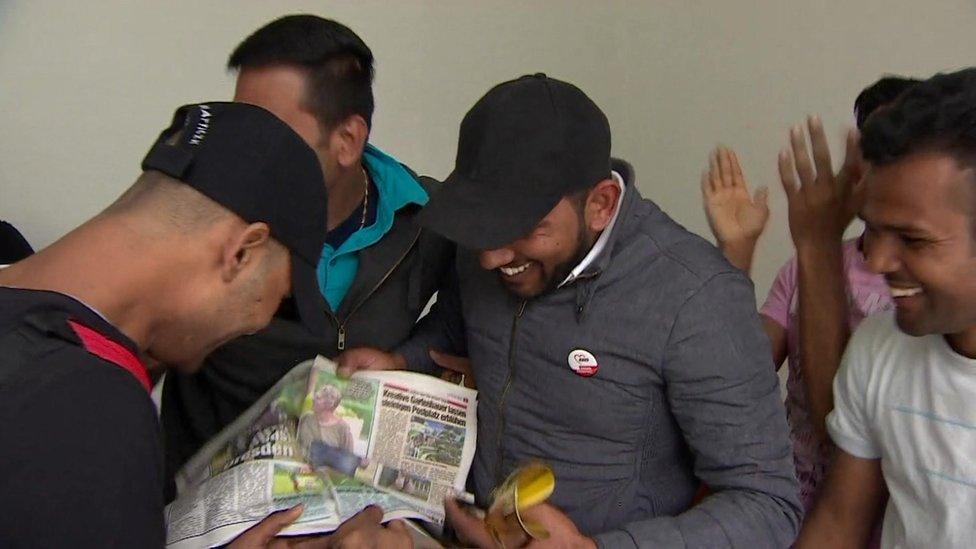
Sunny (C) hopes to be granted asylum and aims to raise the profile of cricket in Germany
Today, about 2,000 asylum seekers live here.
Many of the cricket team are housed in an old hotel on the outskirts of the town.
When I visit the cricketers, they are in celebratory mood. They have crowded into a sparsely furnished bedroom where a golden trophy is in pride of place on a table. Next to it the local newspaper lies open; there is a report about the team and their recent victory in a local league.
One of the players, Sunny, tells me: "If I can do something for Germany then I will play cricket and I will show them the game that is in our veins. Germany has become the best in football and it will become the best in cricket also."
Sunny works as a handyman in the refugee home and hopes to be granted asylum here.

Cricket in Germany

Cricket in Germany dates back to 1858 and the formation of Berlin CC by English and American residents
Deutscher Cricket Bund founded in 1912 with eight teams including Berlin, Hamburg, Frankfurt and Duesseldorf
Modern DCB established in 1988, becomes associate member of International Cricket Council in 1999
Germany competes in international men's and women's competitions and hosts domestic T20 Super Series tournaments
There are six cricketing regions: Bavaria, Berlin, Hessen, Baden-Wuerttemberg, Northern Germany and Western Germany
Source: Deutscher Cricket Bund, external (German Cricket Federation)

"Sport is the best way to make unity," says Sunny. "We have Muslim guys, Christian guys and I belong to a Sikh family. When we play together, we forget everything."
At the start of every training session, Sunny and his team-mates nail down green matting to stop the bowlers from slipping. They manage with donated kit and makeshift equipment. Many new teams have received donations from the UK cricketing charity, the Lord's Taverners, but there is simply not enough to fulfil current demand.
The match begins. The batsman steps up and the ball flies out of sight.
Coach Ahmad sighs. "We need nets," he says, looking in the direction in which the ball disappeared.
"We keep having to replace the balls. We don't have enough equipment but the boys have talent, and they want to play."
Their bats may be broken and the wickets less than perfect. But Ahmad smiles. At least they are playing cricket.
- Published28 April 2016
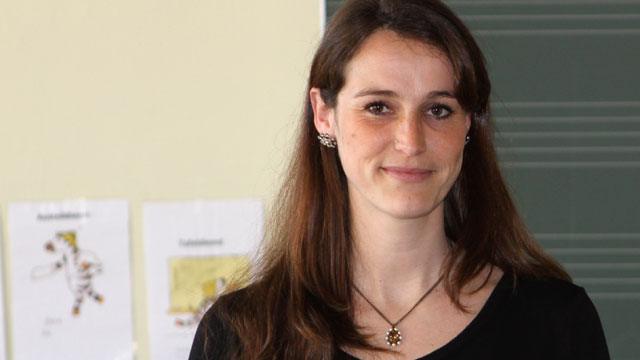
- Attribution
- Published22 March 2016
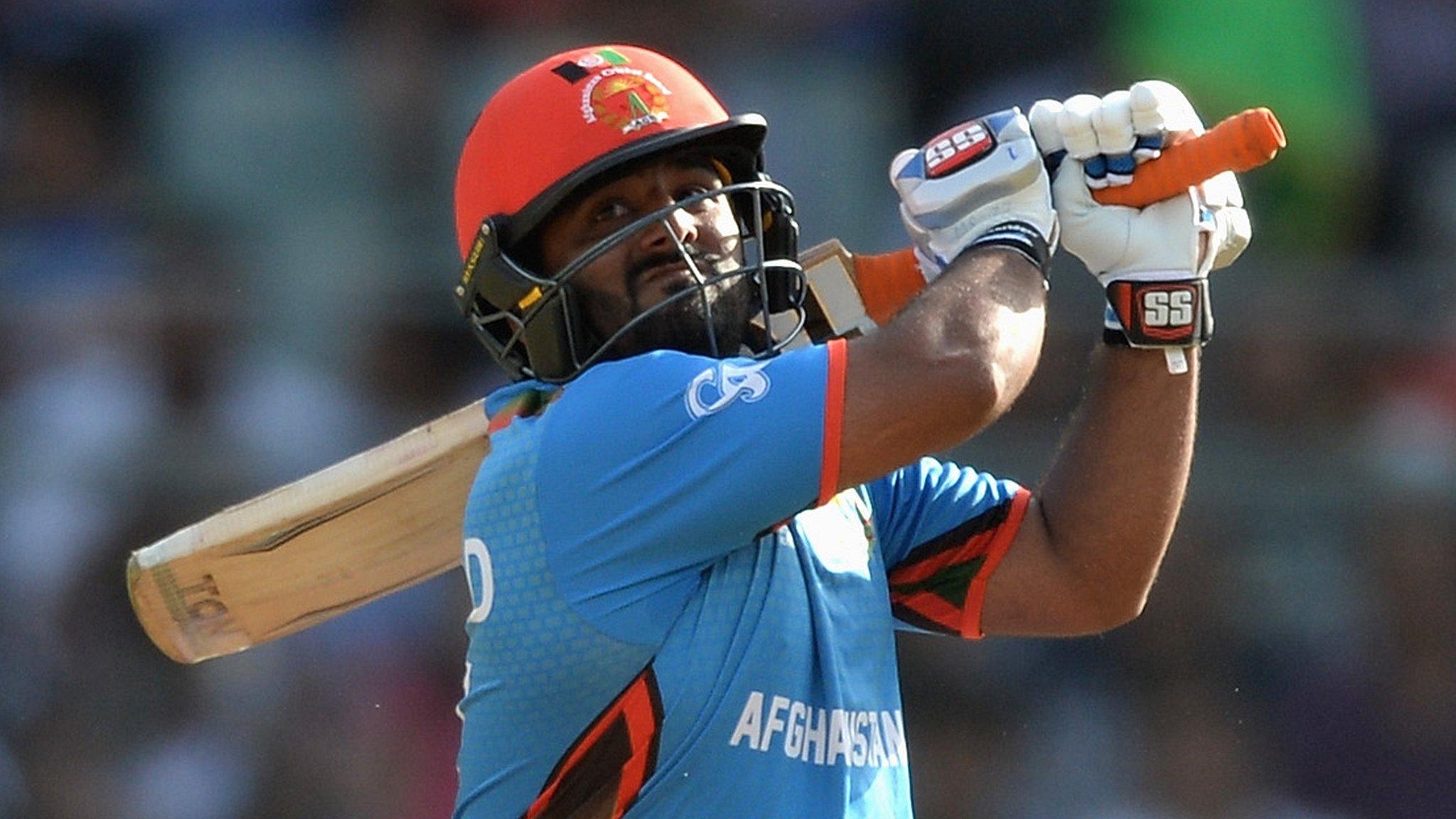
- Published2 September 2015
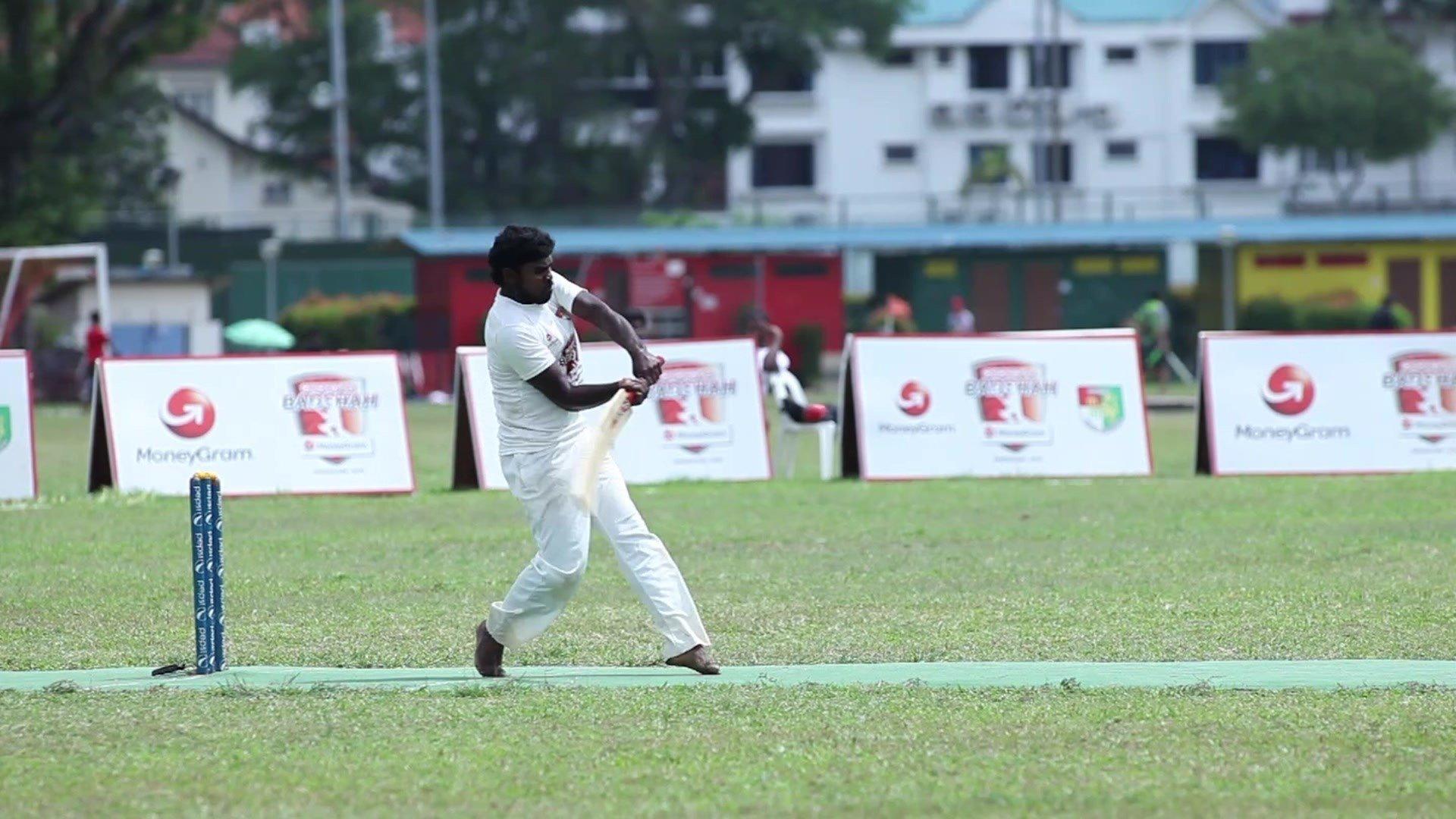
- Published21 September 2012
